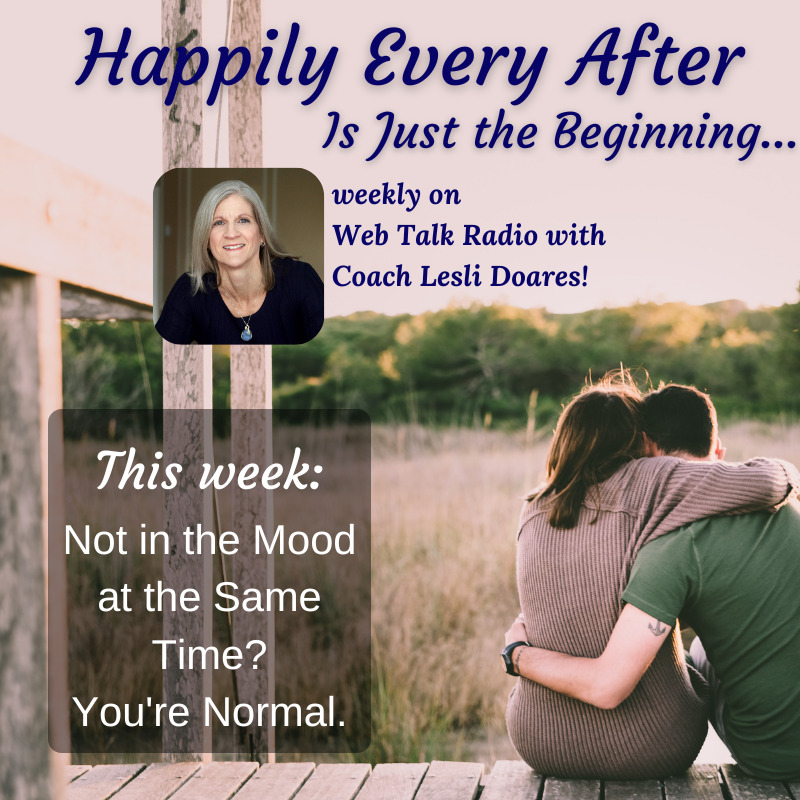I have said for years that the biggest challenge to a successful marriage is that you are now, always have been, and always will be two different people. And this includes how you approach sex and intimacy. In the beginning of your relationship, this part may have been fairly easy. That’s due to the neurochemicals associated with being in love.
But over time, as these chemicals slowly fade away, intimacy can become more complicated. You each revert back to your “normal” way of experiencing desire. There are basically three different ways this happens:
- Spontaneous – desire shows up instantly without any need for physical stimulation. Just thinking about sex gets you going.
- Responsive – desire shows up in response to physical, emotional and/or mental stimulation.
- Contextual – the ability to feel desire is impacted by circumstances and environment.
Sex educator and author Emily Nagoski, PhD notes that 75% of men and 15% of women experience spontaneous desire. 5% of men and 35% of women experience responsive desire. And that the remaining percentages experience a combination of responsive and contextual desire.
You Say You Love Her But….
"We tell people what’s important by how we spend our time. Laura Vanderkam As we head into the holiday season, I have a question. How much time are you setting aside for your marriage? I was talking to a client the other day and he was explaining how he and his wife...
Seeing Things Differently Than Your Wife? That’s Normal
"You will always define events in a manner which will validate your agreement with reality” Steve Maraboli Yesterday I was reminded again that the biggest challenge in relationships is acknowledging that the two individuals are now, always have been, and always will...
Bad Marriage Myth #8 – Marriage Requires Sacrifice
A common definition of sacrifice is to destroy or surrender something for the sake of something else. But you can't destroy yourself and expect to have a healthy marriage. Watch the Entire Bad Marriage Advice Series on YouTube
But like most things, we tend to act as if others feel and behave the way we do. Applying this to your desire can really complicate your intimate life.
As I talked about last time, the context of your intimate encounter matters. If you are short on time or one of you is distracted, the chance of mutual satisfaction goes down. And women often seem to be impacted by context. And it often starts long before you head to the bedroom.
And this is where mental/emotional load comes in. If your wife is overloaded with managing more of the daily family activities, her context may not be conducive to intimacy.
In addition, if the two of you don’t spend intentional quality time together outside the bedroom, her contextual desire, again, may be lacking. And this is where many marriages have room for improvement.
When things cool down in the bedroom there can be a tendency to keep the focus there. You find advice to try different positions, introduce toys, role playing, etc. But if the problem is one of context or disconnection, none of those things will help. In fact, it can actually backfire.
Focusing on physical intimacy when the issue is emotional intimacy can put extra pressure on you both, not what you want if contextual desire is at play,
If you really want to increase your intimacy and connection, what goes on outside of the bedroom needs to support what you want in the bedroom. It won’t change how you each feel desire, you’ll still have to navigate that, but it will give you a head start.
Ready to get started? Schedule your 5 Star Relationship Call with me today.
Around the Web This Week









